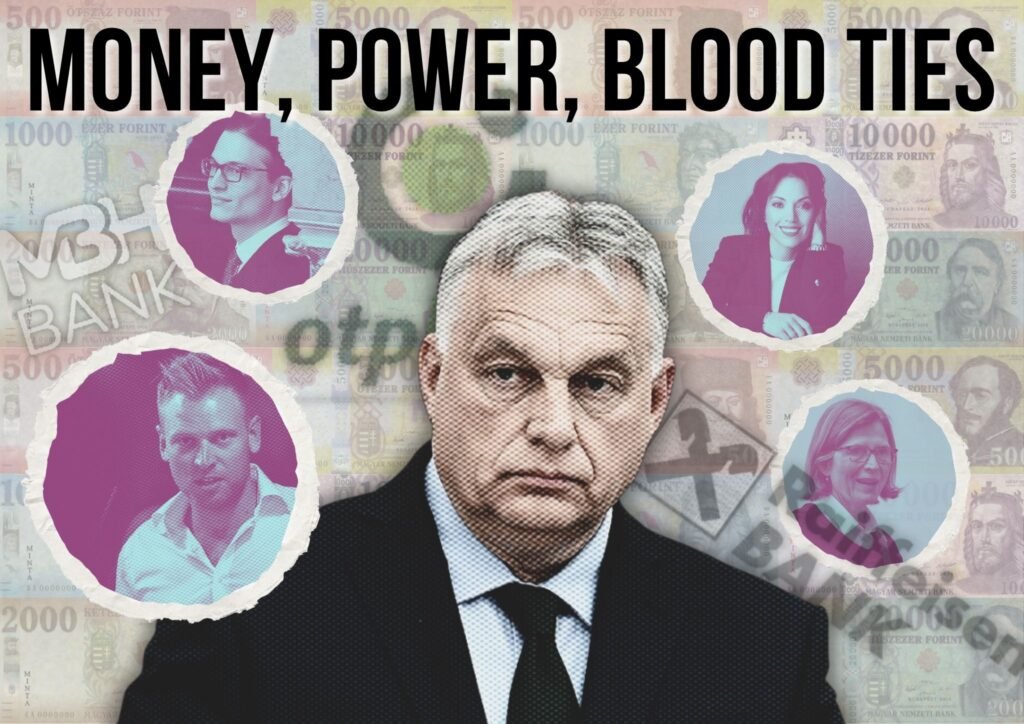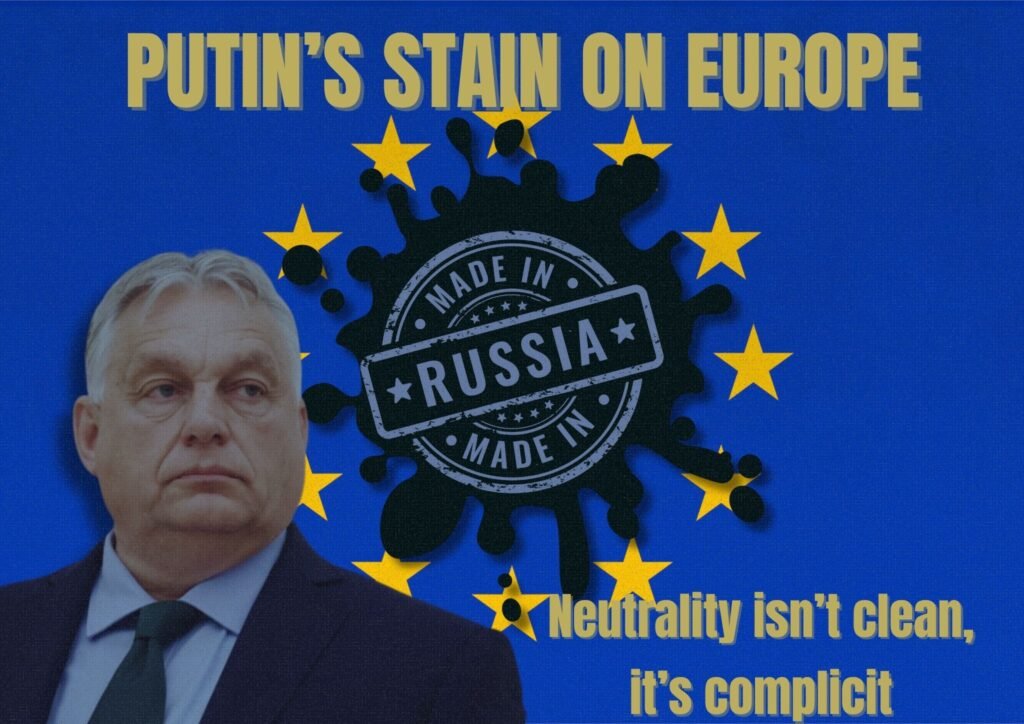In the this part of the investigation by independent journalists from the SHADOWLINE project, we reveal the connections between Viktor Orban and individuals close to him with politicians and businessmen from the Russian Federation, as well as Hungary’s dependence on energy projects with Russia.
It seems rather strange that a European country, a member of the EU, prefers close ties with the toxic Russian authorities, and Viktor Orban and his inner circle do not even hide their engagement with Russia.
Such contacts take place under the pretext of consultations on Russia’s war against Ukraine or, for example, discussions on Hungarian-Russian cooperation in the energy sector.
These interactions are not accidental—they point to the dependence of the Hungarian leader and members of his government on the Russian political and business elite.
In particular, this concerns the Kremlin’s influence on the Hungarian energy sector through Hungarian Minister of the Interior Sandor Pintér, who has long-standing ties with the Russian oligarchy.
From 1993 to 1996, Pintér held a senior position in the Hungarian police and maintained close connections with Orban. He allegedly received bribes from Russian “partners” to lobby for Russian interests in Hungary and to resolve criminal cases involving Russian citizens.
Around 1994, Pintér reportedly received a significant sum of money from Russia, which was later used to fund the election campaign of the ruling Fidesz-Hungarian Civic Alliance party (FIDESZ-MPP). In 1998, this political force won the elections, and Viktor Orbán was elected Prime Minister for the first time.
Control over Hungary’s leading energy enterprises is exercised by Pintér through the appointment of people close to him to the supervisory boards of the relevant companies. The most important managerial decisions are made only after coordination with the Kremlin.

In 2014, Hungary signed an agreement with Rosatom to build two new reactors at the Paks Nuclear Power Plant, worth €12.5 billion. This project aims to expand the existing plant from four to six units by adding two third-generation VVER-1200 reactors. The agreement was signed without a tender, which violates EU regulations. Moreover, it is financed through a loan from Russia, significantly increasing Hungary’s energy dependence on Russia. During the negotiations and signing of the agreement, many experts and politicians expressed concerns about corruption and Russia’s influence on Hungary’s domestic politics.
As mentioned above, Rosatom was chosen as the general contractor without any competitive bidding. Some documentation related to the construction agreement has been classified for 30 years. The decision to start groundwork at the Paks II site was made by Budapest in May 2020, even before Rosatom had received the required permits.
In August 2022, Hungary granted Rosatom the necessary license to proceed with the project, which is primarily financed by credit funds from Moscow. When the European Commission (EC) attempted to investigate the lack of transparency in the agreement with Russia, it faced resistance from Budapest, which insisted the investigation had a “political agenda.” As a result, the EC was forced to accept the continuation of the project.
In 2023, Prime Minister Viktor Orban, despite the position of the state-owned Paks II Zrt., which oversees the Paks II construction, blocked the replacement of Rosatom with the French company Framatome. This decision was made personally by Orban, even though it violated both national and EU laws.
The Paks II project has also been marred by major scandals. In 2024, Gennady Sakharov, investment director of the subcontractor company Orgenergostroy, and Elgudji Kokosadze, deputy director general, were accused of bribery by Russian law enforcement. Sakharov allegedly received a bribe of 32.6 million rubles, which could cause delays in construction or result in a change of contractors. On March 28, 2024, the Basmanny District Court of Moscow arrested Sakharov on charges of large-scale bribery. His detention was initially set until May 26, 2024, but later extended to April 14, 2025. Both Sakharov and Kokosadze confessed in January 2025. Kokosadze was placed under house arrest, and both face up to 15 years in prison.
This corruption scandal involving a subcontractor raises serious doubts about the transparency and compliance of the project with international standards, including radiation safety.
Furthermore, on February 14, 2025, opposition MP Akos Hadházy published a Facebook post stating that an internal wall had collapsed. However, the main risks involve the tilting of the southern wall and water leakage into the facility, potentially threatening not only the construction site but also the safety of the operational Paks I nuclear plant. During a visit to the site by Hungarian MP Antal Csárdi and his colleagues, they were not informed about the incident and the damage was deliberately concealed.
The public only learned of the incident thanks to independent media, which obtained a document revealing that the Hungarian Nuclear Energy Authority had ordered construction to be suspended and an investigation to be carried out. This document was presented to a parliamentary committee only after it was publicly exposed, and the authority’s leadership confirmed it had already raised concerns about the condition of the site’s insulation.
The parliamentary session on the matter also highlighted a lack of political accountability from the Hungarian government. FIDESZ-MPP representatives were absent, journalists were banned, and only two opposition MPs were present, including Antal Csárdi.
Credible doubts regarding the Paks II project have been raised by Mycle Schneider, a German nuclear energy consultant and chief editor of the World Nuclear Industry Status Report (WNISR), an annual report on the state of the global nuclear industry.
Another critical dependence of Hungary on Russia is the 2020 long-term gas supply contract with Gazprom, valued at $4.5 billion, which significantly increased Russia’s leverage over Hungary.
However, the ties are not limited to the energy sector. Representatives of Orban’s government maintain regular contact with Russian government officials and members of Russia’s financial and industrial groups. In particular, Hungarian Foreign Minister Péter Szijjártó is considered the key liaison between Viktor Orban and Vladimir Putin. Under the pretext of discussing energy issues—mainly oil and gas supply—Szijjártó frequently holds phone calls with Russian officials and visits Russia, where issues related to Russia’s war against Ukraine are also discussed. This information is often reported in the Hungarian press, framed as the government’s efforts to care for the well-being of the Hungarian people.
Moreover, Tigran Haribyan, deputy ambassador of the Russian Federation to Hungary and considered an officer of the Russian intelligence services, personally delivers talking points meant to be voiced by the Hungarian government. He delivers these directly to Antal Rogán, Minister of the Prime Minister’s Cabinet Office and a close associate of Orban. Haribyan also maintains direct contact with the editor-in-chief of Magyarnemzet, a media outlet fully controlled by the Hungarian government.

A clear example of Orban’s open participation in pro-Russian activities was his visit to Moscow on July 5, 2024, during which he met with Vladimir Putin. This marked the first visit by an EU member state official to Russia since 2022. Orban described his trip as a “peace mission.” This move sparked harsh criticism from both the European Union and Ukraine, especially since it was conducted without prior coordination with Hungary’s European partners. Nevertheless, Budapest intends to continue its pro-Russian course, particularly now that the Hungarian side senses implicit support from the administration of Donald Trump.
Hungary’s leadership routinely criticizes the EU sanctions regime against Russia on every international platform available. The government argues that EU sanctions have hurt European countries more than Russia. For instance, during the negotiations on February 19, 2025, among representatives of the 27 EU member states regarding the 16th sanctions package against Russia, Foreign Minister Péter Szijjártó harshly criticized the move, claiming that Brussels is acting out of inertia and failing to account for the new geopolitical realities following Donald Trump’s return to power in the U.S.
A striking example of Orban’s position is the fact that his government—via Minister Szijjártó—hailed as a “victory” the removal of 27 individuals and organizations (both Russian and Chinese) from the EU sanctions list. Among those removed were Patriarch Kirill, the Russian Olympic Committee, and the football clubs Zenit and CSKA.
Author’s team – Alex Varga
